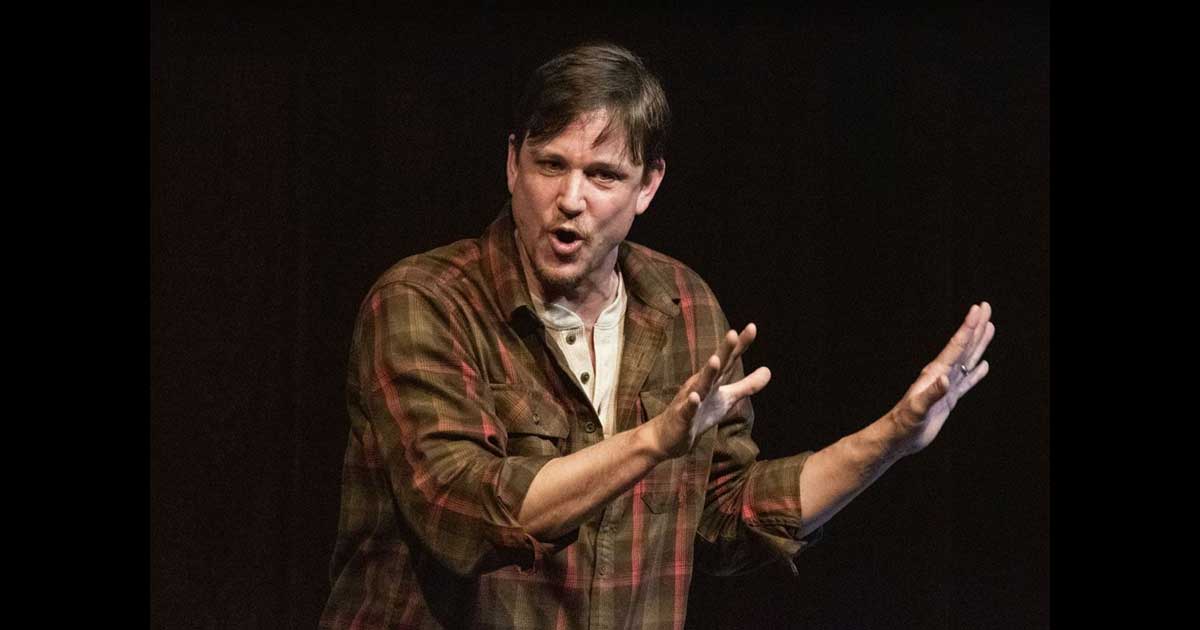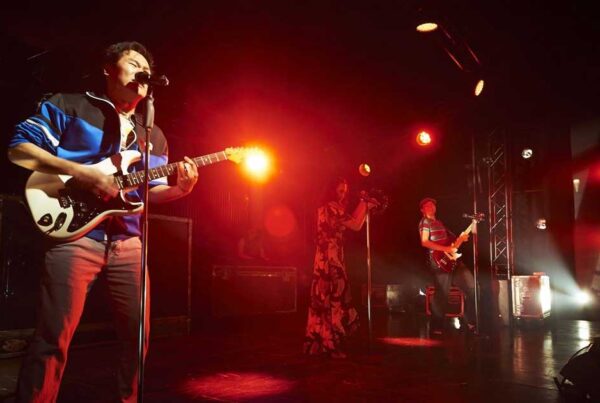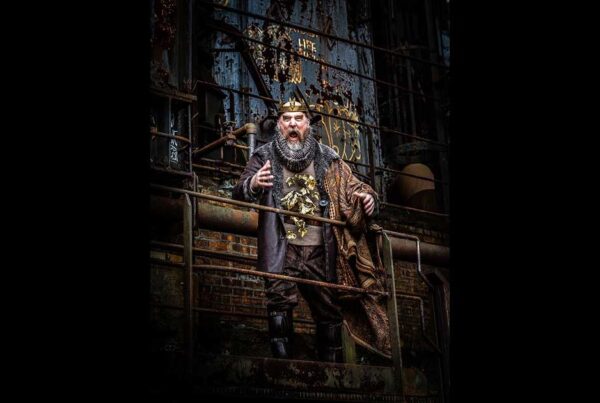
Pittsburgh Post-Gazette – “The Gun Show (Can we talk about this?)” is a plea in the form of a play.
That’s not just a play on words. It is in the DNA of the Quantum Theatre production now at the Carnegie Library of Homewood and destined for stops on the North Side and Sewickley.
The plea, right there in the title, comes up again and again throughout E.M. Lewis’ confessional stories about her complicated relationship with guns. Quantum is aiding her quest by providing in-person and online ways for receptive audience members to tell stories of their own, without any political slant or judgment. It’s not a unique concept, to be sure, but one rarely achieved in a society polarized by the mere mention of guns.
Judging by the opening-night audience Friday, that part of “The Gun Show” is off to a running start, with audience members taking advantage of the 15 minutes post-show opportunity to stand up and be heard.
The solo show itself is an odd construct of storytelling — a play by a woman about her experiences, but told here by a male actor, mostly in her voice.
There is a sort of framework to help the audience know whose voice we are hearing — actor Andrew William Smith explains at the beginning that he is a surrogate for Ellen (the playwright) and the five stories she feels compelled to share, in a desperate attempt to get us talking about guns. She no longer can bear to tell some of these stories herself, so the actor will tell them for her, as if she is telling them. Got it?
“The Gun Show” moves apace, as Mr. Smith holds us in his (Ellen’s?) grip for an hour, with moments of provocation and inspiration woven into the fabric of the work.
Ellen reminds us that although she usually writes fiction, “This one I’m calling the truth.” Among her truthful stories is a blissfully romantic day with her husband-to-be. She sets an idyllic scene that includes 20 guns and getting her first shooting lessons from her Marine beau.
Standing tall behind the center-stage desk, Mr. Smith/Ellen often leafs through a spiral notebook of apparent notes for himself/herself — or do words on the page manifest the writer? In any case, it’s hard to shake the ongoing disconnect-reconnect with Ellen-actor, actor-Ellen.
Lest we forget that he is mostly speaking as Ellen, Mr. Smith uses a flashlight to shine a light onto the face of a female audience member at key moments. Is she another stand-in for the playwright, or the playwright herself? There are separate scripts written for both instances, but it was certainly ambiguous on opening night.
It works for Ellen’s truth that Mr. Smith appears as a vision of the white American Everyman, dressed in jeans and a plaid flannel shirt over a long-sleeved henley. And it’s stereotypically appropriate for someone who grew up in a house where rifles stood guard by the door and hunting was a way of life.
Onstage, there is an American flag to one side, a desk and chair — Ellen is a writer, after all — and few props. There are no guns to be seen. They are everywhere, though, in stories of everyday life and the haunting revelations that led the playwright to send her plea out into the world.
The actor is an adept storyteller for his hour onstage, playing up the more comic moments as he circles the topic, even when Ellen veers slightly off course. Talking about pop culture’s gun obsession and the Russian invasion movie “Red Dawn,” Ellen allows for a mini-tangent on Patrick Swayze.
The specifics of her stories lead us down divergent paths, both light and very dark. The path you take upon hearing them may depend on how you feel about guns. Rejecting the screamers and fearmongers — the anti-gun, bleeding-heart Rachel Maddow-watching left and the far right ravings of an Alex Jones, she is looking for that middle ground where people “can talk about this.”
As a smalltown Oregon native, Ellen speaks for rural families, whose gun and hunting cultures are as American as apple pie. There also is the very real safety concern of living hours from the nearest law enforcement. On the other hand, wherever you may live, government and academic studies show that a gun in the home is more likely to be used in a homicide, suicide or unintentional shooting than to be used in self-defense. Lives lost can be measured in the tens of thousands.
“The Gun Show” brings those numbers down to one person struggling with issues of fear, safety and how to reconcile the two when it comes to her relationship with guns. Once we know Ellen’s stories, Quantum invites all of us to share our own, without partisanship or judgment.
Led by TJ Parker-Young, Quantum’s patron services manager and a Texas-born playwright, the conversation on opening night included a gang-related gun encounter, a grandfather’s prized rifle displayed over the mantelpiece and an attorney who had his car window shot out, while his wife and daughter were inside. Two of the storytellers from seemingly different worlds shook hands and spoke privately afterward.
That moment alone was a win for “The Gun Show” and a satisfying answer to a fervent plea.




